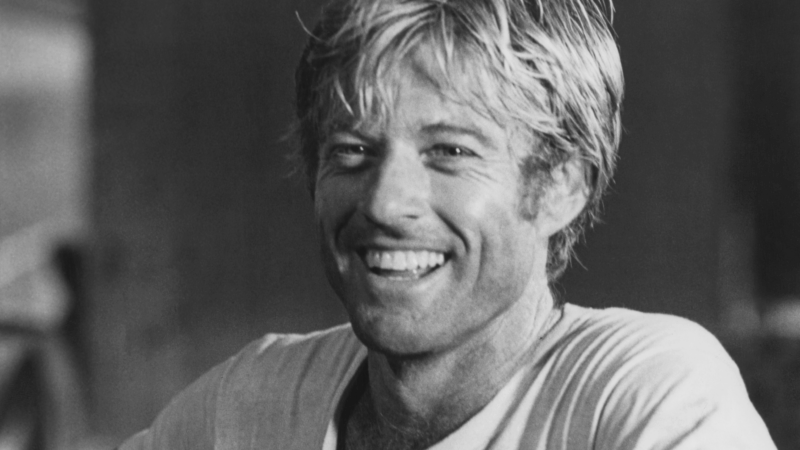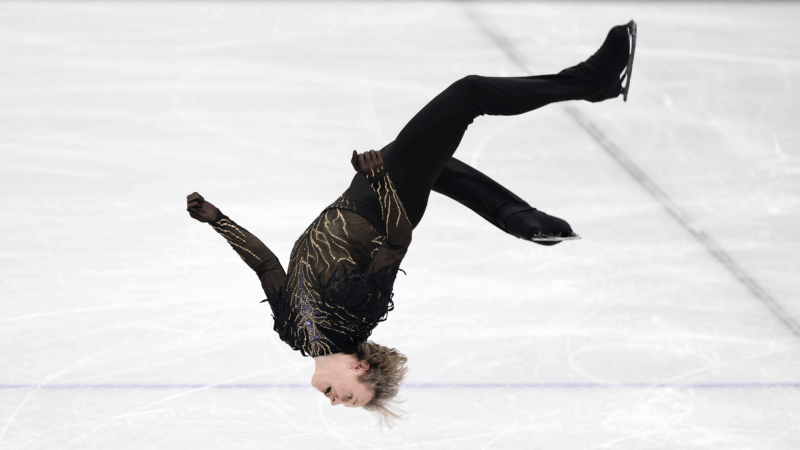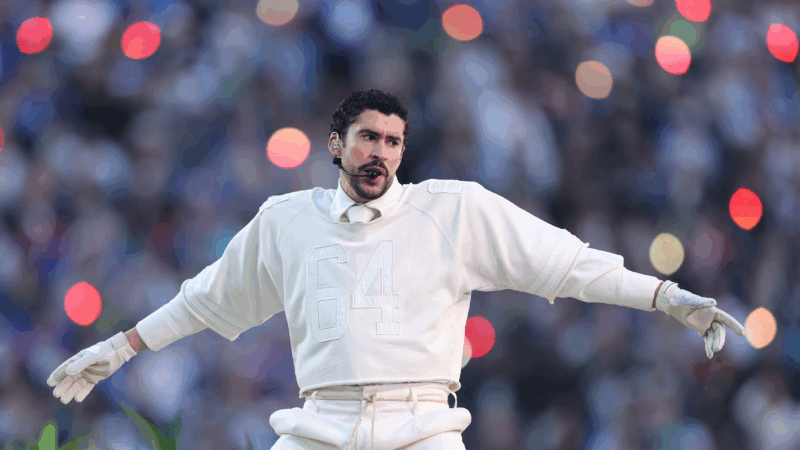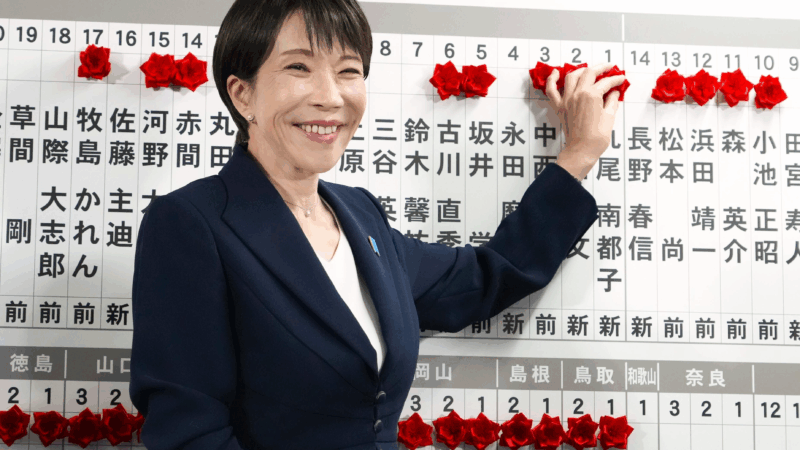‘I was quite a maverick kid’ — ‘Fresh Air’ went behind the scenes with Robert Redford
As a kid in Los Angeles, Academy Award-winning actor Robert Redford wasn’t a good student. During class, he remembers gazing out the window and drawing pictures under the desk.
“I wasn’t learning the way I was supposed to learn,” he told Fresh Air in 2013. “I think I realized that my education was going to happen when I got out in the world and engaged with other cultures, other places, other languages, and had the adventure of exploration.”
Redford saw college as his ticket out of Los Angeles. “I went to college because it was Colorado, and it was the mountains, and by that time I realized that nature was going to be a huge part of my life,” he says.
Redford, who died at his home in Utah on Sept. 16, got his breakout role in the 1969 Western, Butch Cassidy and the Sundance Kid. It was a buddy film with Paul Newman, and Redford almost didn’t get the part.
“Because of the age difference between Paul and I, which was like 12, 13 years, and he was really well-known and I was not well-known … the studio did not want me,” Redford recalled. “When I met Paul he was very generous, and he said, ‘I’ll do it with Redford.’ I never forgot that. … He and I, in the course of that film, became really, really good friends.”
Redford went on to appear in more than 80 films, including The Sting, All the President’s Men and The Natural. But he says directing, which he turned to in 1980, was a better match for his sensibilities: “I think there is more of a connection as a director to what I’d started out in life to be, which was an artist.”
In 1981 Redford founded the Sundance Institute, a nonprofit foundation devoted to developing and promoting independent films. “The idea was to bring these filmmakers with their new material and help them develop …” Redford explained. “I love being there when the [Sundance] labs are on because by taking two elements out of the process — competition and money — you’d be amazed at what that does for the work condition.”
Fresh Air remembers Redford with three different archival interviews, which were broadcast Jan. 12, 1998, May 19, 1998 and Dec. 12, 2013.
Interview highlights
On coming from a family that did not talk about loss
[I] come from a dark family [that] emigrated from Ireland and Scotland: Didn’t talk much; you don’t complain much; you don’t ask for anything; you bear the brunt of whatever comes your way, and you do it with grace. So when my mom had twin girls that died [after birth], there was no talk about it.
When I was a little kid, I was very close to my uncle who was in the Second World War, and he was with Gen. [George] Patton’s Third Army. He was an interpreter because he spoke four languages fluently. I was very fond of him, and he would, on his furlough, he’d come down to play baseball with me and so forth. And then he went away to war and was killed in the Battle of the Bulge. When he died, I was very close to him.
The way the family dealt with it — it just wasn’t talked about. It just happened, and you didn’t ask a lot of questions. It was what it was. I think that was sort of built into the family structure. … There was no talk about it, and everybody moved on.
On being inspired by the lifestyle of jazz musicians and beat poets when he was young
I was quite a maverick kid. I was not drawn to convention and I was bothered by the conventions I was forced to live in — in that kind of Republican environment in Southern California where everything was perfect — the sun always shone. And there was something missing from me that I found in these two movements. …
The essential ingredient for me was freedom. You were living in an atmosphere of post-war … economic boom. … I just wanted desperately to get out. I didn’t want to be in Los Angeles. I didn’t want to be in my house. It wasn’t for lack of love or anything like that, I just didn’t want to be there. I wanted to be somewhere else where something else was happening. And so, the lifestyle of being on the road, or being free, free-wheeling — was enormously appealing to me because it meant that I would have some license. If I hooked into that, there would be some license there to break the rules, which was very appealing to me.
On being known for being handsome
The notion is that you’re not so much of an actor, you’re just somebody that looks well. That was always hard for me, because I always took pride in whatever role I was playing.
Robert Redford
One of the things that has been sort of weird is to see yourself characterized so often as somebody that looks well, that has glamorous looks, or is appealing physically. That’s nice, I’m not unhappy about that. But what I saw happening over time was that was [what was] getting attention.
I wanted to be good at my craft, and therefore I would be an actor that would play many different kinds of roles, which I did. I played killers, I played rapists, really deranged characters, but most people don’t know about that, because that was in television. So suddenly you’re seeing yourself in a glamour category and you’re saying, “Wait a minute.” The notion is that you’re not so much of an actor, you’re just somebody that looks well. That was always hard for me, because I always took pride in whatever role I was playing. I would be that character.
On his first time acting in and directing a film (in the 1998 movie The Horse Whisperer)
Well, it was a little different because as an actor, I always appreciated just sort of getting lost in the moment and being there in the space that I was supposed to be in as a character, with the situation or the other person, and not really occupying my mind much with the technical stuff around it, like camera, lights, and so on. I mean, I had some knowledge of it, of course, but I didn’t make it a practice to learn it intensely so I could use it. …
As a director, … I love the idea of standing back and looking at the whole canvas and imagining what I was going to put together and how and watching the rhythms of the actors because I love actors. And those two didn’t seem to blend very well together.
So when I did [The Horse Whisperer], I had some anxiety about it, some self-consciousness about it. It wasn’t hard. It was exhausting because of having to do the two things, but it wasn’t hard. It was comfortable enough when I was doing it. What was uncomfortable was the in-between of having to step over to a monitor, which I don’t like that mechanical intrusion on the experience — and then look at it and judge yourself. That felt weird.

On creating the Sundance Institute and the Sundance Film Festival
Sundance basically is a place. It’s a retreat where stories can find themselves, rather than being reduced down to a commercial motivation. So, that’s sort of the place it is. It’s a community for artists.
And then with that success came a new opportunity, as the exhibition increased, as the volume increased, there was no commensurate capability for places for the films to be seen. So we went into distribution with cable television, because there was a sort of a starve-out in the marketplace. There were not enough places for those films to go be exhibited, so very often they were either reduced to going directly to video or they never got distribution at all.
On taking breaks between films
Residence in the mountains where you can get out in nature and move around, or travel — whatever it is, so that you can get away from your experience. I feel it’s very important not to stay hounding your experience — don’t follow it too far; don’t follow it too long; don’t pay a whole lot of attention to it once you turn it over to the public. It’s really their business. It’s no longer mine.
Nancy Guthrie search enters its second week as a purported deadline looms
"This is very valuable to us, and we will pay," Savannah Guthrie said in a new video message, seeking to communicate with people who say they're holding her mother.
Immigration courts fast-track hearings for Somali asylum claims
Their lawyers fear the notices are merely the first step toward the removal without due process of Somali asylum applicants in the country.
Ilia Malinin’s Olympic backflip made history. But he’s not the first to do it
U.S. figure skating phenom Ilia Malinin did a backflip in his Olympic debut, and another the next day. The controversial move was banned from competition for decades until 2024.
‘Dizzy’ author recounts a decade of being marooned by chronic illness
Rachel Weaver worked for the Forest Service in Alaska where she scaled towering trees to study nature. But in 2006, she woke up and felt like she was being spun in a hurricane. Her memoir is Dizzy.
Bad Bunny makes Puerto Rico the home team in a vivid Super Bowl halftime show
The star filled his set with hits and familiar images from home, but also expanded his lens to make an argument about the place of Puerto Rico within a larger American context.
Japan’s Takaichi to pursue conservative agenda after election landslide
Japan's first female Prime Minister, Sanae Takaichi, brought the ruling Liberal Democratic Party its biggest-ever electoral victory, fueling her ambitions to pursue to a political agenda which she says could "split public opinion."







